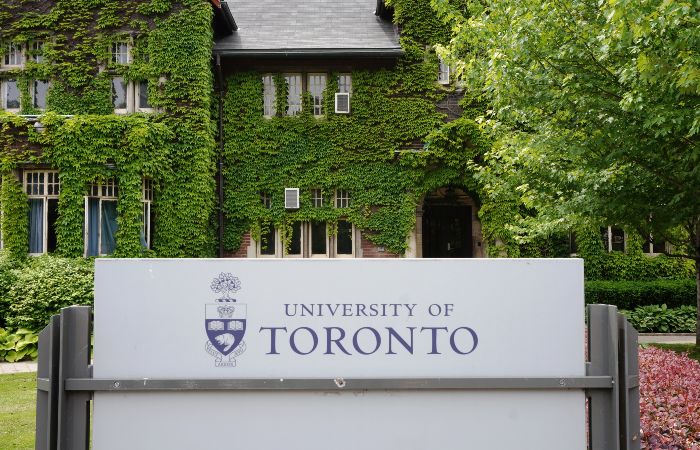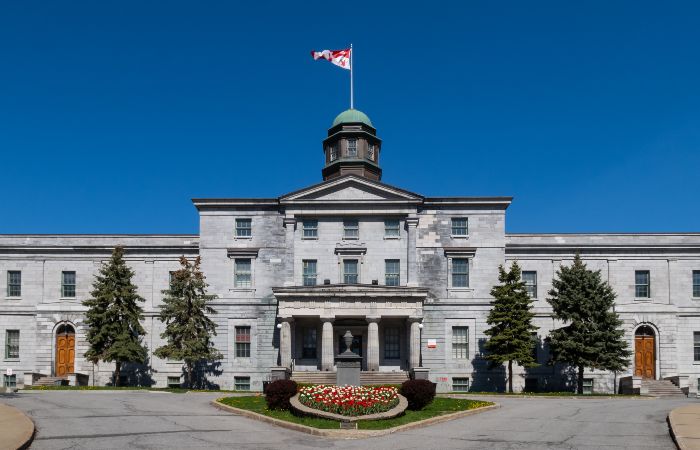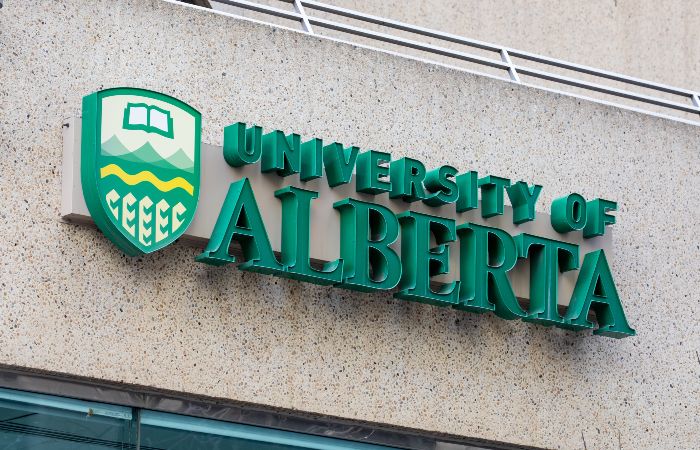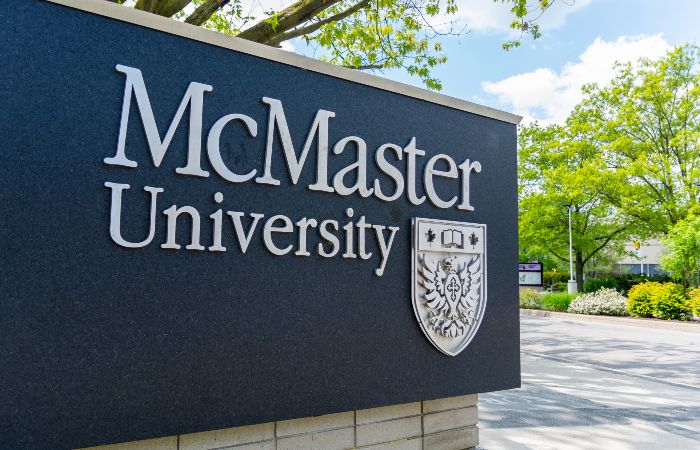Why Study in CanadaCanada is known for its cutting-edge education sector, rich multicultural environment and breathtaking landscapes. Pursuing higher studies in Canada can be an enticing prospect for many Indian students. Aspiring learners who choose to study in Canada from India can enjoy the following benefits:
- Exceptional Education System with Government Support
- Immigrant-Friendly Environment
- Affordable Tuition Fees
- Several Job Opportunities
- Undergraduate Degree
- Associate Degree
- Graduate Degree
- PhD
- On-campus accommodation - CAD 8,000 or INR 5 lakhs
- Off-campus shared accommodation - CAD 9,000 or INR 5.5 lakhs
- Food - CAD 6,000 or INR 3.7 lakhs
- Books and supplies - CAD 800 or INR 50,000
- Transportation - CAD 1,200 or INR 75,000
- University of Toronto
- McGill University
- University of British Columbia
- Universite de Montreal
- University of Alberta
- McMaster University
- University of Waterloo
- Western University
- University of Ottawa
- University of Calgary
- St. Francis Xavier University - Gerald Schwartz School of Business
- Acadia University - F. C. Manning School of Business
- Carleton University - Sprott School of Business
- University of Waterloo - Department of Accounting and Finance
- University of Prince Edward Island - Department of Graduate Studies
- McGill University
- Western University
- University of Toronto
- University of British Columbia
- University of Alberta
- McGill University
- University of Calgary
- McMaster University
- York University
- Dalhousie University
- Business and Finance
- Computer Science and Information Technology
- Engineering
- Health and Medicine
- Agriculture Science and Forestry
- Media and Journalism
- Law
- Economics
- Gerald Schwartz School of Business, St. Francis Xavier University
- F. C. Manning School of Business, Acadia University
- Sprott School of Business, Carleton University
- Department of Accounting and Finance, University of Waterloo
- Department of Graduate Studies, University of Prince Edward Island
- School of Business, Dalhousie University
- De Groote School of Business, McMaster University
- Queen's School of Business, Queen's University
- Richard Ivey School of Business, University of Western Ontario
- Rotman School of Management, University of Toronto
- Schulich School of Business, York University
- Computer Science
- Civil Engineering
- Public Health
- Finance
- Human Resource Management
- Mechanical Engineering
- Pharmacy
- Electrical Engineering
- Wycliffe College
- Seneca College of Applied Arts and Technology
- Humber College
- Centennial College
- George Brown College
- Conestoga College
- Langara College
- Lambton College
- Mohawk College
- Marketing
- Advertising
- Public Relations
- Business Administration
- Engineering and Engineering Management
- Computer Science and Information Technology
- Pharmacy, Nursing and Midwifery
- University of Toronto
- McMaster University
- Red River College
- Thompson Rivers University
- Fanshawe College
- English Language Exams
- IELTS for Canada
- TOEFL for Canada
- PTE for Canada
- Postgraduate Entrance Exams
- GRE for Canada
- GMAT for Canada
Admission ProcessReady to work towards a better future? Here's our step-by-step guide to the admission process in Canada:
- Pick Your Course
- Plan Your Finances
- Complete the Entrance Exams
- Finish the Application
- Apply for the Visa
- Fall
- Winter
- Summer
Applying for a Canada Student VisaIndian students hoping to pursue higher studies in Canada must apply for a Canada study visa. Here's how you can apply for a student visa for Canada from India:
- Receive the Letter of Acceptance from your selected Canadian university.
- Visit the Citizenship and Immigration Canada (CIC) website to apply for a Canada student visa.
- Upload the necessary documents, including your English proficiency test scores.
- Showcase your proof of sufficient financial resources documents.
- Present documents confirming you do not have a criminal record.
- Submit all medical reports stating you are fit and healthy.
- Complete your in-person interview at the respective embassy office.
Jobs in CanadaStudents can take up part-time jobs in Canada to help pay for their higher education abroad. Your student visa permits you to take up various on-campus part-time jobs. You cannot work for more than 20 hours per week on your student visa permit. Once you complete six months of your course, you can apply for an off-campus employment permit. International students can complete off-campus work without a Canadian work permit visa if:
- They are a full-time student with a valid study permit.
- They are enrolled at a designated learning institution for post-secondary studies or are pursuing a secondary-level vocational programme in Quebec.
- They are enrolled in an academic, vocational or professional training programme for at least six months.
- Teacher's Assistant
- Tutor
- Freelancer
- Web Designer
- Translator
- Salesperson
- Dogwalker
- Barista
- Management opportunities
- Healthcare Specialists
- Chemical Engineers
- Data Scientists
- Electrical Engineers
Does Canada accept TOEFL?Yes, most universities in Canada accept TOEFL scores to showcase your proficiency in English.Does Canada accept PTE?Some Canadian colleges accept PTE results, but you should check your university's requirements before registering to take a test.What are the requirements for a student visa in Canada?To apply for a student visa, individuals must have confirmed admission at a Designated Learning Institute (DLI), have access to funds to pay the tuition fees and living expenses for themselves and family members travelling with them, obey the law and not have a criminal record, and prove they are in good health.How much is the Canada student visa fee?Aspiring students have to pay CAD 150 or INR 9,200 for their visa.How much does it cost to study in Canada?The cost of studying in Canada depends on your university and course. You can expect to pay between CAD 8,000 and CAD 35,000 or between INR 5 lakhs to INR 22 lakhs for your annual tuition fees for an undergraduate degree. Students pursuing their master's should budget between CAD 10,000 and CAD 52,000 or INR 6 lakhs and INR 32 lakhs annually.How is the education system in Canada?Canada is known for having one of the best education systems in the world. Several Canadian colleges rank in the top 100 global universities.What is the No. 1 university in Canada?As per the Canadian University Rankings, the University of Toronto is the top university in the country.Which course is the best course in Canada?According to demand, business management courses are the best in Canada.What is the course fee in Canada?Your course fee depends on your selected university. Students can budget between CAD 8,000 to CAD 35,000 for undergraduate courses and between CAD 10,000 to CAD 52,000 for master's courses.Is there a two-year course in Canada?Yes, you can choose to pursue a two-year PG diploma in Canada.
















